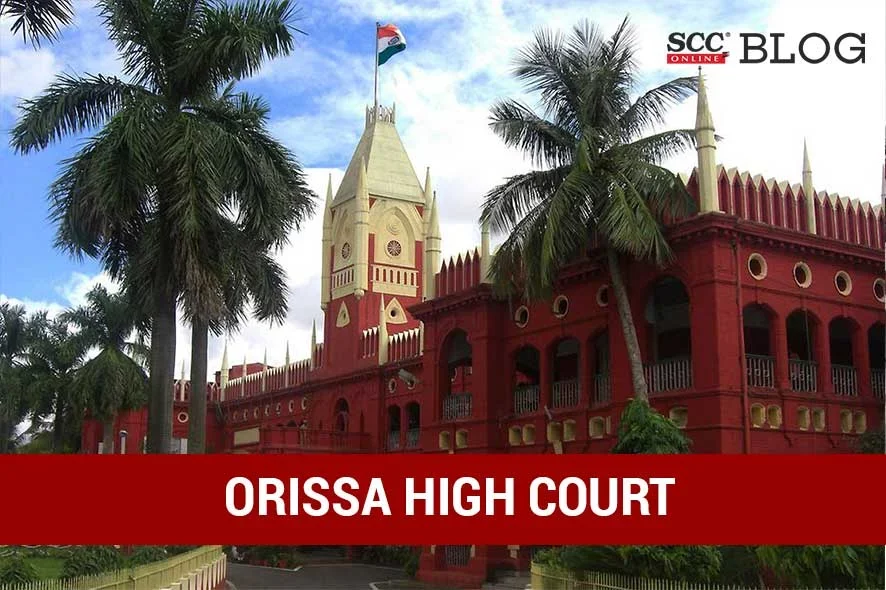Orissa High Court: In a Criminal Appeal filed under Section 14-A(2) of the Schedule Caste/Scheduled Tribe (Prevention of Atrocities) (‘SC & ST’) Act, 1989, read with Section 482 of the Code of Criminal Procedure (‘CrPC’) challenging the order passed by the Special Judge whereby, the accused person’s petition under Section 205 of CrPC to dispense her from personal appearance in the case was rejected, S. K. Sahoo, J. allowed the appeal and found that the Trial Court’s reasons for rejecting the petition under Section 205 of the CrPC was invalid. Consequently the accused was exempted from personal appearance.
FACTUAL MATRIX
The prosecution alleged that on 30-09-2021, the informant had come to the Hospital along with a pregnant lady, at that time the accused, who was a doctor at the hospital, asked the informant about when she came to the hospital. The informant replied that she had been there for an hour and the accused allegedly slapped and abused the informant.
Thereafter, report was presented by an informant before the Inspector in charge, Bhawanipatna Police station on 30-09-2021 through which the case under Sections 294/341/323 of the Penal Code (‘IPC’) was registered and upon completion of the investigation charge sheet was submitted on 20-03-2022 against the accused under Sections 341/323 of the IPC and Section 3(2)(va) of SC & ST Act.
The accused filed a petition under Section 205 of CrPC on the grounds that she is a public servant and her attendance in the field in attending patients in emergency and non-emergency cases is essential, therefore her personal appearance may be dispensed with. Additionally, she sought that she may be allowed to be represented through her counsel and she undertook to appear as and when her personal appearance would be required by the Court.
The Trial Court held that it was not mentioned under the petition that the accused being a medical officer has remained busy round the clock and no single evidence has been supplied to prove the averments. The Trial Court further said that “allowing the petition under Section 205 of Cr.P.C. would be like granting a blank cheque, which would affect the process of Court in framing of charge and other proceedings in which the presence of the accused would be highly required” and rejected the petition. Hence, the present appeal.
ANALYSIS
Whether the averments taken under the petition under Section 205 of CrPC can be allowed?
The High Court referred to Section 205 of the CrPC which allows a Magistrate to dispense with the personal attendance of the accused and said while the Section 205 of the CrPC doesn’t specify the scenarios warranting this, it grants the Magistrate discretionary power. However, the Court noted that the clause “if he sees reasons so to do” implies that this discretion should be exercised judiciously and reasonably, requiring the Magistrate to provide a reasoned order for such dispensation. The High Court relied on Reliance Airport Developers (P) Ltd. v. Airports Authority of India, (2006) 10 SCC 1, wherein it was held that ‘discretion’ vested in Judges cannot be held to be whims or fancy or personal caprice, rather it means judicial and judicious discretion.”
The Court also referred to S.V. Muzumdar v. Gujarat State Fertilizer Co. Ltd., (2005) 4 SCC 173 and said that Section 205 of the CrPC demands the Magistrate to exercise discretion based on the circumstances of the case, the accused’s situation, and the necessity of their presence. The Court stated that judicial discretion here shouldn’t be arbitrary but informed by careful consideration of all relevant factors. The Court also added that especially when a public servant is involved, the Court must strike a balance between legal requirements and public interest. When considering petitions under Section 205 of CrPC, especially from Government servants responsible for public welfare, the Court’s duty is to weigh these aspects judiciously.
The High Court relied on K. Narayan Patra v. Gopinath Sahu, 1991 SCC OnLine Ori 253 wherein it was held that Courts should consider exempting accused individuals from personal appearance. The Court added that it must balance the inconvenience caused to the accused by their absence from work or profession against the prejudice resulting from their non-appearance in Court and insisting on personal attendance could cause harassment to the accused, and Courts must ensure this inconvenience aligns with the seriousness of the allegations and the potential severity of punishment upon conviction.
The Court referred to Kamaljeet Singh Ahluwalia v. State of Orissa, 1998 SCC OnLine Ori 134 where the Court laid down guidelines as to how Magistrate should exercise his power under Section 205 of the CrPC, emphasizing that “ personal appearance in criminal trials was the norm, with exemptions granted through judicial discretion and factors such as the seriousness of the offense, moral implications, and potential lengthy sentences should be taken into consideration.
The Court noted that in R. Annapurna v. Ramadugu Anantha Krishna Sastry, (2002) 10 SCC 401, it considered the leniency provided for an accused women under Sections 406 and 420 of the IPC and said exemption from personal appearance, subject to conditions like non-disputing of identity, counsel representation in Court sessions, and compulsory presence when crucial.
Therefore, the Court acknowledged the accused’s role as a crucial hospital figure and found that the reasons for rejecting the petition under Section 205 of the CrPC were invalid. Consequently, the Court set aside the order, allowed the accused to be exempted from personal appearance, with directions to the accused’s counsel to attend the Court, permit collection of evidence in the accused’s absence, and ensure her presence when required. Hence, the Criminal Appeal was allowed.
[Dr. Hemangini Meher v. Sangita Naik, 2023 SCC OnLine Ori 6552, Order dated: 05-12-2023]
Advocates who appeared in this case :
Counsel for the Accused: Advocate Devashis Panda
Counsel for the Respondent: Additional Standing Counsel Sonak Mishra









